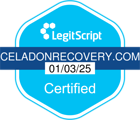Rehabilitation is a crucial step in overcoming substance abuse. In fact, there are nearly 20,000 rehabs in the U.S. This has grown by 37% in last 10 years. However, recovery does not end when someone leaves a treatment facility after 30-days (or more). The transition from rehab back into daily life requires thought planning to ensure long-term sobriety and success. While early recovery is work-in-progress, there are several common paths individuals take after completing a Florida rehab program, depending on their needs, support system, and level of recovery.
The whole idea is that recovery from addiction is a life-long process and where people go after rehab sets their recovery foundation and establishes continued support.
Sober Living Homes
Many individuals choose to move into a sober living home after rehab. These residences provide a structured, substance-free environment that helps ease the transition back into society. Sober living homes often have house rules, including curfews, drug testing, and participation in support meetings. They provide a safe and supportive space for individuals to strengthen their sobriety before fully integrating into independent living. Sober (or halfway) homes provide valuable peer support and accountability.
Outpatient Treatment Programs
Most completing residential treatment still require structured support, continued therapy, counseling, and group meetings. Typically, patient’s step-down to intensive outpatient (IOP) while living in nearby sober house. IOP meets three times a week in evenings to accommodate work or school. IOP also maintains treatment continuity while integrating back to daily life. At the same time, some patients connect with local outpatient therapist when returning home from out-of-state rehab.

Returning To Family Home
Some individuals choose to return home after rehab. This can be beneficial if they have a strong support system in place, including family members and friends who encourage their sobriety. However, returning home may pose challenges if the environment includes triggers or influences that contributed to substance use in the first place. It is essential to establish a relapse prevention plan and seek ongoing support, such as therapy or support groups.
12-Step Support & Recovery Groups
Engaging with 12-step groups, such as Alcoholics Anonymous (AA), Narcotics Anonymous (NA), or SMART Recovery, provides peer support in moat communities. Regular meetings help individuals stay accountable and connected to others who understand their journey. These groups reinforce positive habits and provide encouragement through shared experiences. Most importantly, 12-step groups offer sponsorship (or mentors) to guide those new in recovery.
Employment and Educational Opportunities
Reintegrating into work or school is an important step in rebuilding a fulfilling life. However, many young adults find their growth stunted as active substance use monopolizes their energies. For this reason, some in recovery need job placement or educational programs to enhance their skills and future prospects. Finding purpose through meaningful work or education is a vital aspect in early recovery. The busier you are, the better you will do in early recovery as boredom breed’s relapse.
Continued Therapy and Counseling
Mental health support is crucial for long-term recovery. Many people continue individual or group therapy to address underlying issues, develop coping strategies, and work on personal growth. Therapy can help prevent relapse by providing a space to process emotions and challenges.
The journey after rehab varies for each individual, but the key to long-term success lies in creating a stable and supportive environment. Whether through sober living homes, therapy, support groups, or personal development, individuals can find a path that best supports their ongoing recovery. Staying proactive, seeking support, and maintaining a commitment to self-improvement are essential steps in leading a fulfilling and sober life.
About Celadon Recovery
Celadon is comprehensive addiction and mental health treatment center located along the shores of the Caloosahatchee River in Fort Myers, Florida. With a full-continuum of care including detox, residential, and outpatient programs, we are committed to quality substance use and co-occurring disorder care. Call us today at 239-266-2141.





